About the Department
9 Departments Shaping the Future of Manufacturing
The College of Industrial Engineering consists of nine departments. In each department, there is a focus not only on specialized engineering knowledge but also on acquiring skills in business and management. The learning opportunities are diverse, and graduates have a wide range of employment options and qualification possibilities. Let's explore the educational content and distinctive features of each department.
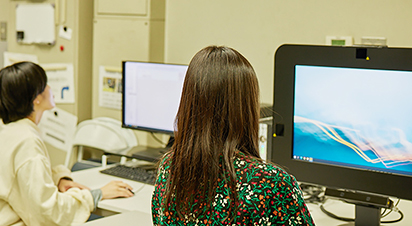
Department of Industrial Engineering and Management
This department focuses on acquiring theories and techniques for effectively utilizing managerial resources and learning 'soft engineering' to apply in fields such as corporate management. It is characterized by the interdisciplinary and composite study of subjects from both liberal arts and sciences, producing numerous business leaders.
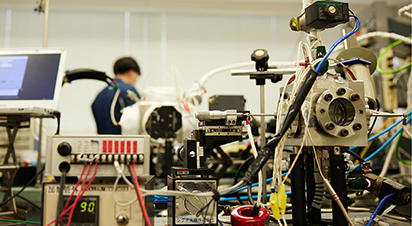
Department of Sustainable Engineering
This department focuses on studying the Earth's environment, as well as environmental and safety impacts on daily life. It aims to cultivate experts who lead environmentally friendly next-generation manufacturing. By integrating a broad range of engineering fields, it contributes to the creation of a sustainable society.
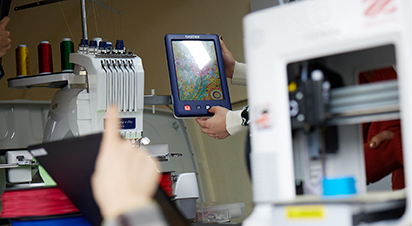
Department of Conceptual Design
This department aims to cultivate individuals who can discover problems faced by people and society by overseeing the whole, and design product development and spatial creation comprehensively. It seeks to develop design engineers who, while being logical, can also understand the fun, beauty, and playfulness of design.
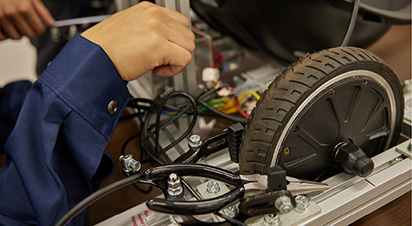
Department of Mechanical Engineering
Mechanical engineering plays a crucial role as the foundation of various industries, contributing significantly to the development of a prosperous society by integrating with other fields of study. In this department, we nurture individuals capable of creating machinery and vehicles that form the backbone of industries.
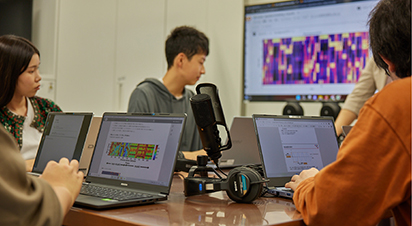
Department of Electrical and Electronic Engineering
This department systematically and efficiently teaches the fundamental and specialized knowledge of electricity and electronics, ranging from small electronic components like ICs to large-scale power plants. Through education with high density in specific areas of expertise, we cultivate engineers who can understand the latest technology and have a grasp of management as well.
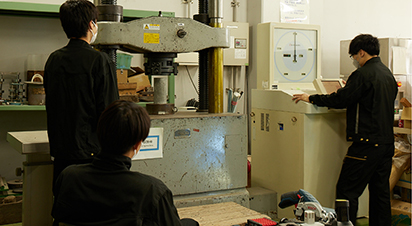
Department of Civil Engineering
This department covers a wide range of civil structures such as roads, bridges, levees, and railways. We aim to cultivate civil engineers capable of creating sustainable societal infrastructure in harmony with the natural environment, providing safe living spaces for citizens, and generating highly convenient urban environments.
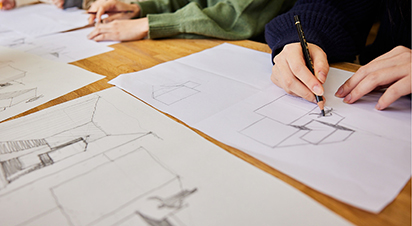
Department of Architecture and Architectural Engineering
Architecture is a comprehensive discipline that creates spatial environments. This department not only encompasses construction technology but also takes a comprehensive approach to architecture from a wide range of fields, including social sciences, humanities, and arts. We aim to cultivate individuals with creativity and practical skills based on engineering theory.
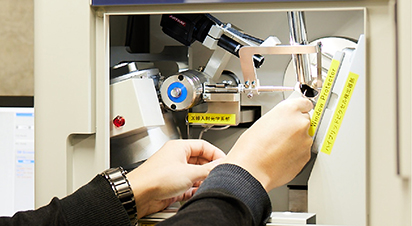
Department of Applied Molecular Chemistry
This department is dedicated to exploring the infinite possibilities of materials while harmonizing resources and the environment. Our goal is to educate and conduct research with a focus on comprehensive knowledge, understanding green chemistry, and cultivating engineers with originality and creativity.
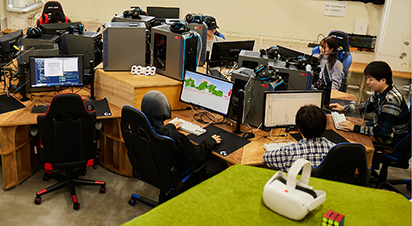
Department of Mathematical Information Engineering
This department aims to nurture information processing professionals who can play a central role in the rapidly evolving information society. By studying various information processing technologies from both theoretical and practical perspectives, students develop foundational skills, problem-solving abilities, and practical expertise.
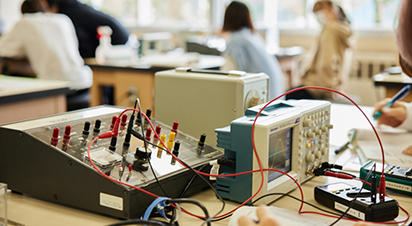
Liberal Arts and Basic Sciences to Enhance the Human Qualities Necessary for Manufacturing and Management
In the College of Industrial Technology, we emphasize subjects in the liberal arts and basic sciences to cultivate engineers who understand both manufacturing and management. These courses provide a solid understanding of the fundamental and applied aspects of natural sciences, which serve as the foundation of engineering. They aim to develop the ability to understand society as a whole broadly and from multiple perspectives.